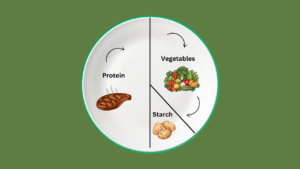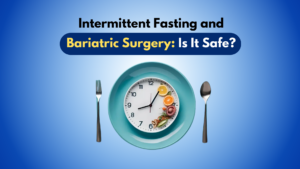
Vidhi Dave
Bariatric Dietician & Content Writer
A Guide for Obesity: How To Identify, Prevent, And Treat The Condition

Now impacting millions of individuals worldwide, obesity has become a major global health concern. Obesity is a complicated medical condition linked to an endless number of major health problems; it is not just a cosmetic concern.
The prevalence of obesity and overweight in both adults and children is rising. Globally, the percentage of children and adolescents aged 5-19 who are overweight or obese climbed from 4% to 18% between 1975 and 2016. This is a more than four-fold increase.
Overweight and obesity, which were formerly thought to be issues exclusive to high-income nations, are now sharply increasing in low- and middle-income nations, especially in metropolitan areas. The majority of children who are overweight or obese reside in developing nations, where the pace of increase has surpassed 30% compared to developed nations.
But What is the major difference between Overweight and Obesity?
Overweight and Obesity these words might sound similar but they are not as, despite how often people use these names synonymously.
Let’s make it simple by digging into these words: Obesity is a metabolic disease marked by an excessive and abnormal accumulation of fat throughout the body. Because of the excessive accumulation of fat in the body, obesity is a medical disease that negatively impacts an individual’s health. A person’s Body Mass Index (BMI) is deemed abnormal if it is greater than thirty.
Whereas, It is generally agreed that someone is overweight if their body mass index (BMI) is above the healthy range for their height. There is a line of difference between being overweight and obese. Aside from the fact that a gain in fatty tissue is not dangerous in and of itself, there are other factors than food and exercise that may contribute to a person weighing more than they should. These include fluid retention, bone density, and muscle mass.
Individuals with a body mass index (BMI) between 25 to 29 are considered overweight. This condition is the precursor to obesity, although it is incorrect to use the term “obesity” when dealing with a pre-obesity state
What exactly do we mean when we say someone is obese or overweight?
The body mass index (BMI) is a helpful indication that may be used to determine your status in relation to these groups. It gives your weight in kilograms per square meter based on your height and the amount of additional fat you carry in relation to your height.
You will need to have the following information on hand in order to calculate your body mass index:
Weight: When calculating your body mass index (BMI), the number that displays on the scale after you step on it should be expressed in kilos. Weight is the number that displays. If the weight that is displayed on your bathroom scale is only in pounds, you will need to perform some straightforward calculations in order to convert it to kilograms.
Height: Height is another important factor that you should be aware of. You will need to know your height in meters in order to calculate your body mass index (BMI). If the findings of your measuring tape are only shown in inches, you will need to complete some additional calculations in order to determine your height in meters.
“Prevention is better than Cure”
There is a saying that goes “prevention is better than cure,” and this saying is applicable to a wide variety of aspects of our lives. The most prevalent context in which we use this expression is while speaking about our health. It is in everyone’s best interest to stay clear of potentially adverse circumstances from the very start, rather than having to cope with the repercussions of those experiences later on. In a similar manner, this idea that prevention is always preferable to treatment can be applied to many different aspects of one’s life.
For example in Obesity
Paying more attention to childhood obesity can be one of the solutions to overcome these prevalence.
It is possible for children and adolescents to develop unhealthy eating habits and become overweight or obese due to a lack of physical activity. A child’s current weight is affected not just by their genes but also by their lifestyle.
The following are some recommendations for combating childhood overweight and obesity in young children and adolescents:
-
Instead of concentrating on a child’s weight, you should gradually try to modify the food habits and activity levels of the family.
-
Show them how it’s done. Children are more likely to adopt healthy behaviors if their parents model those behaviors for them by engaging in physically active pursuits and eating nutritious foods.
-
Encourage them to get their bodies moving. Most days of the week, children should participate in a session of 60 minutes or more of moderate physical activity. Exercising for more than sixty minutes may help one lose weight and keep it off, as well as providing weight maintenance.
-
Cut down to less than one to two hours each day the amount of time you spend looking at screens, including those on phones, laptops, and televisions.
-
Encourage children and teenagers to only eat when they are hungry and to take their time while doing so.
-
It is not appropriate to give food as a reward or to withhold food as a form of discipline.
-
Instead of stocking the refrigerator with sugary drinks and foods that are high in fat and sugar, you could stock it with milk that is fat-free or low-fat, fresh fruit and vegetables.
-
Every day, you should provide at least five portions of fruits and vegetables.
-
Instead than encouraging children and teenagers to drink beverages with added sugar like soft drinks, sports drinks, and fruit juice drinks, try encouraging them to drink water instead.
-
Consume your meals as a unit, as a family. Having meals together as a family might help develop healthier eating habits.
People who are obese can control their weight by adopting a better lifestyle. But if altering one’s lifestyle doesn’t have any long-term, permanent impacts, bariatric surgery can be the only option.
Calculating your BMI today can help you determine whether you fall into the overweight or obese category, providing valuable insights into your overall health.
Aastha Bariatric, Centre of Excellence in Bariatric and Metabolic surgery, offers comprehensive support not only for conquering obesity and addressing underlying health issues but also for enhancing your self-assurance and igniting the path to a fresh start in life.





